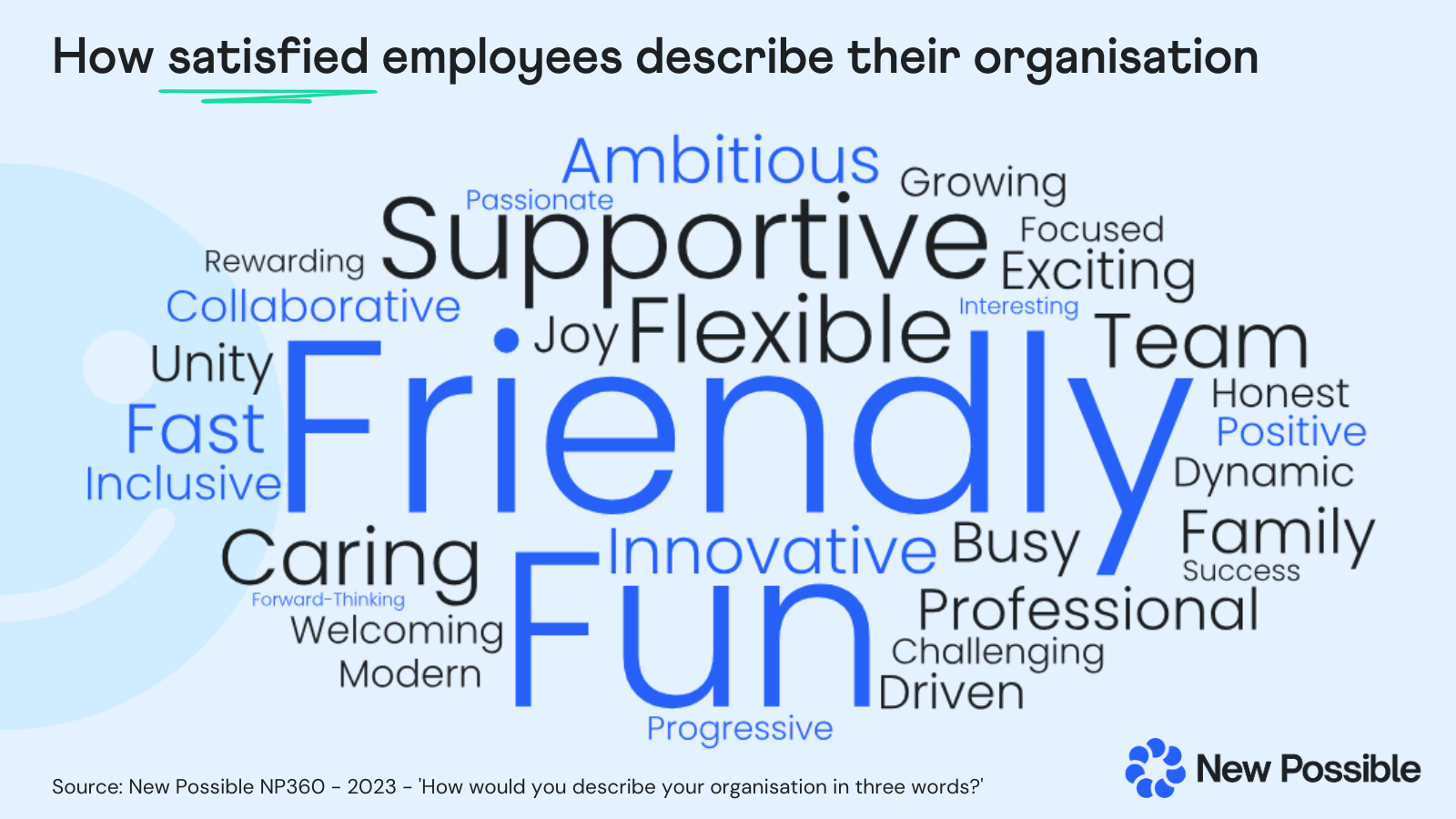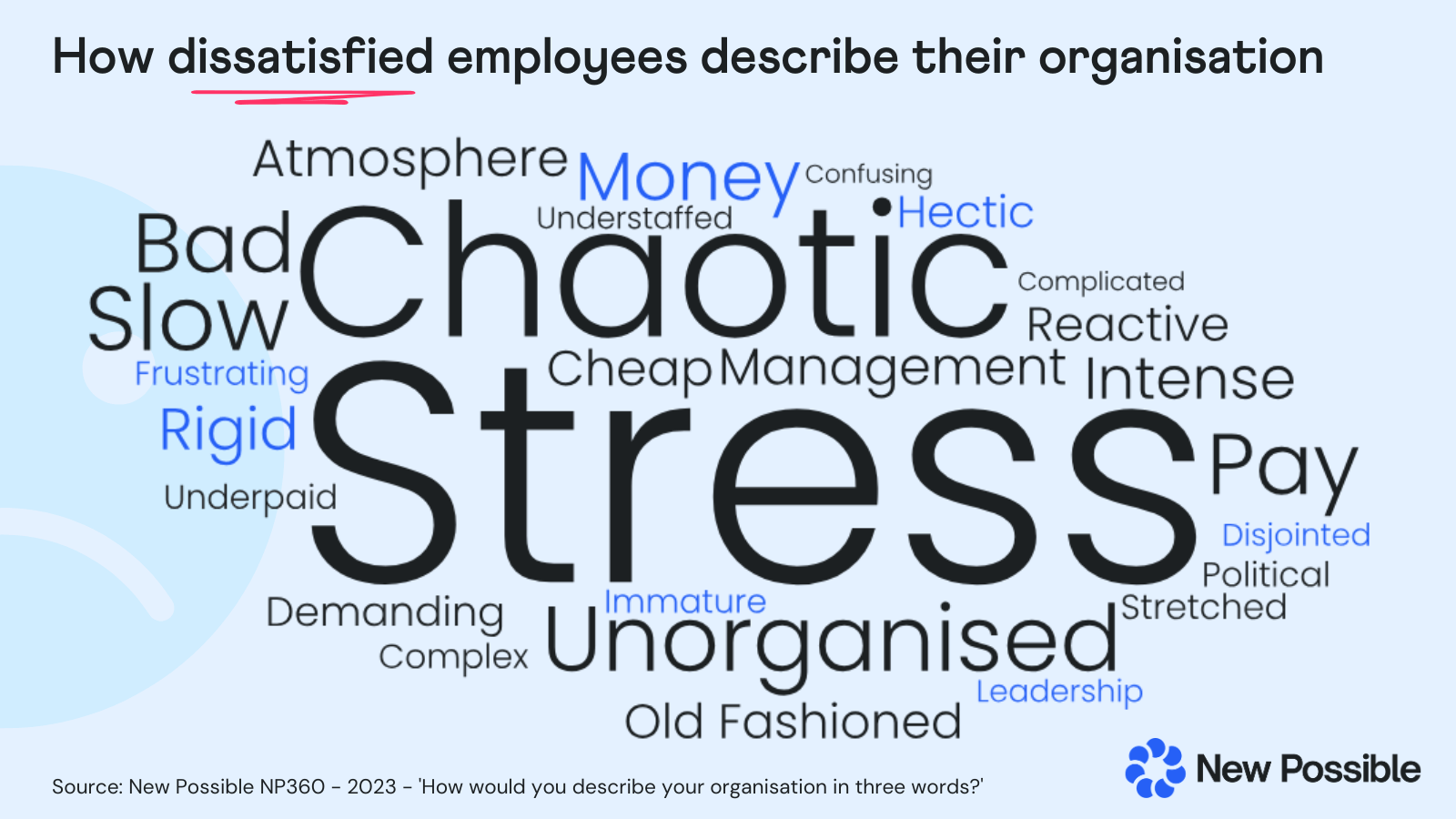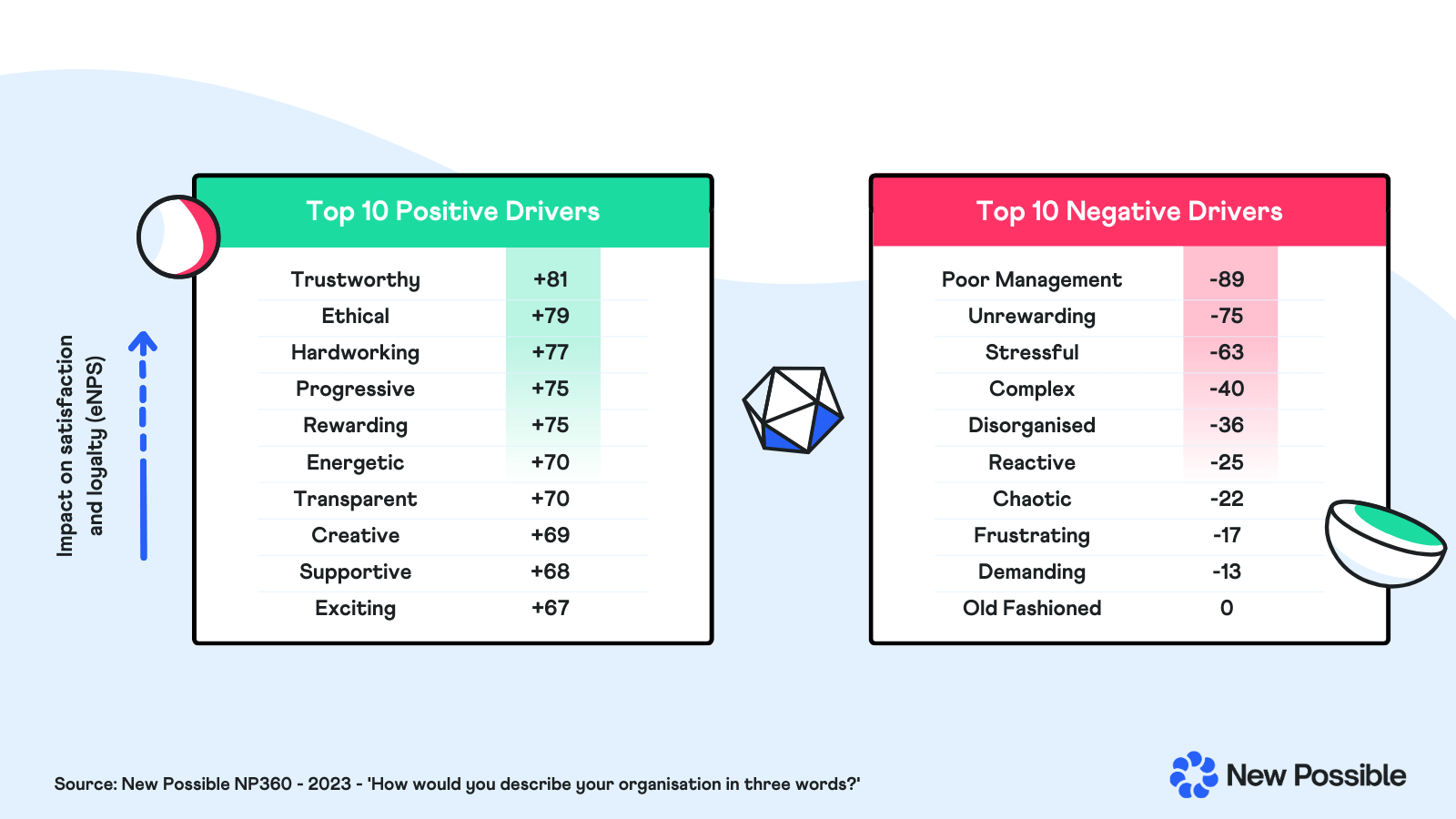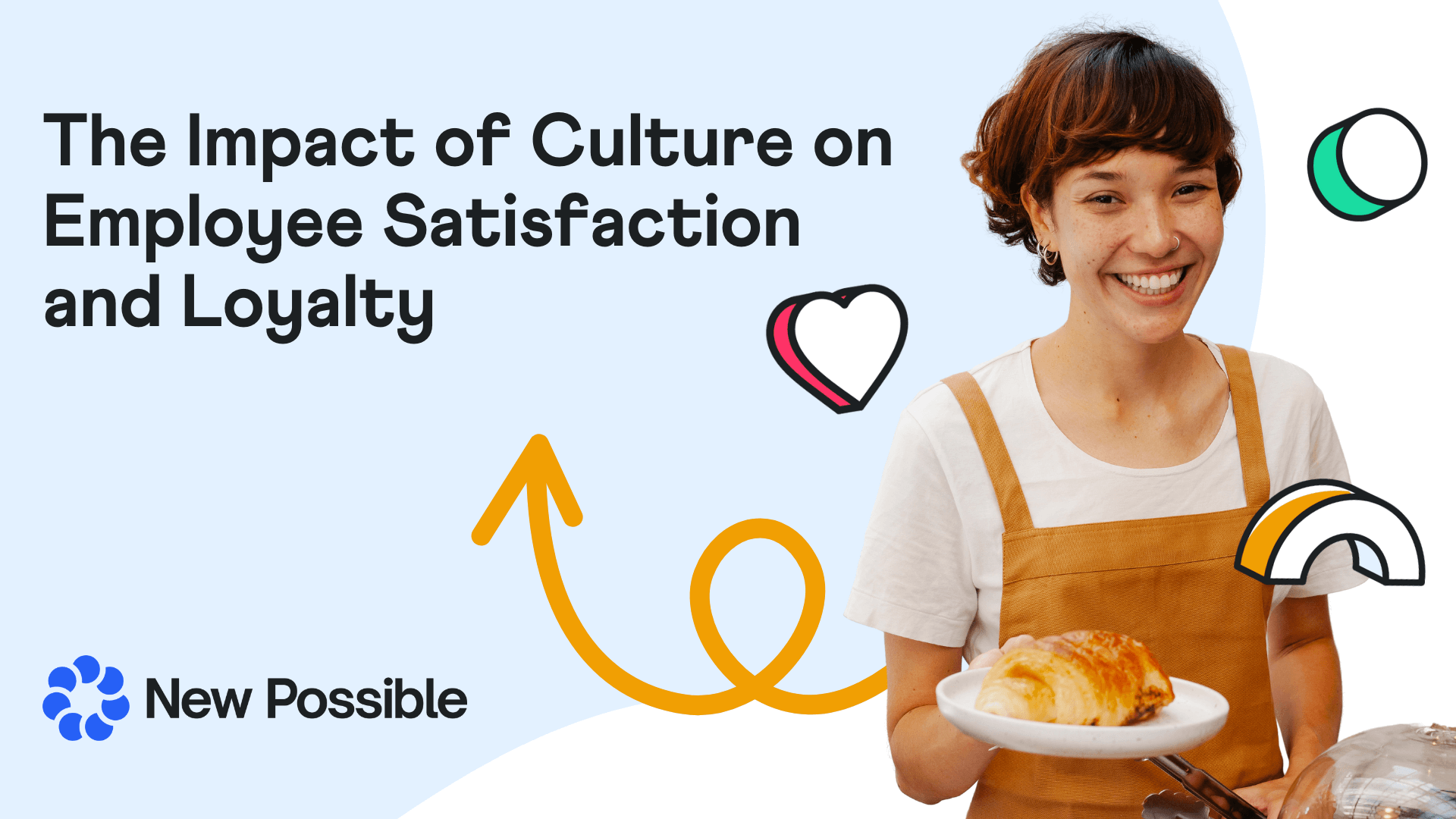By Ava Kaveh, Graduate Data & Insight Analyst at New Possible
Culture is a term that refers to the shared values, beliefs, norms, and practices that shape the way people work and interact in an organisation. It’s often described as ‘the way we do things around here’ or ‘the personality of the organisation’.
As one of the seven key themes assessed in our NP360 people experience survey, this deep-dive uses data captured by New Possible in the last 12 months to explore the relationship between culture and the employee Net Promoter Score, which is a strong indicator of satisfaction and loyalty.
What is the employee Net Promoter Score (eNPS)?
eNPS measures how likely employees are to recommend their workplace. It's calculated from responses to the following question:
‘On a scale of 0-10, how likely are you to recommend Company X as a place to work?’
Depending on how an employee scores, they’ll fall into one of the following categories:
- 9-10 - Promoters: Happy and motivated
- 7-8 - Passive: Mostly happy, but not enthusiastic enough to recommend
- 0-6 - Detractors: Dissatisfied and unlikely to recommend
eNPS is then calculated by subtracting the percentage of detractors from the percentage of promoters and multiplying by 100, resulting in a score ranging from -100 to +100.
%20-%20New%20Possible_.png)
Understanding culture
New Possible measures culture by asking a range of questions structured around 4 key drivers: leadership, people policies, governance and purpose. For this analysis however, we’ll focus on responses to the following open-text question: ‘How would you describe your organisation in three words?’.
By assessing the differences in keywords used by promoters and detractors, specific culture themes that positively or negatively impact eNPS can be identified.
The following word clouds compare how promoters and detractors typically describe their organisation. Note that the bigger the word, the more often it’s mentioned:


Satisfied employees most frequently describe their organisation as friendly, fun, supportive and flexible, in contrast to dissatisfied employees who most often talk about a work environment that’s stressful, chaotic, and disorganised.
When delving into the relationship between words and eNPS, we found that the most frequently mentioned words don’t always have the greatest impact on satisfaction and loyalty. This is likely because some attributes, such as a 'friendly' atmosphere, are considered hygiene factors that are essential for employee satisfaction but don't necessarily drive higher recommendations.
In the next section, we reveal which words when used to describe an organisation have the most significant impact on an employee's likelihood to recommend.
Which words have the greatest impact on satisfaction and loyalty (eNPS)?

We found that organisations described as 'trustworthy', 'ethical', and 'hardworking' tend to have a higher-than-average eNPS. Conversely, those associated with 'poor management', ‘unrewarding', and a 'stressful environment' typically have much lower scores.
In summary, the concept of an ‘ideal’ culture is not one-size-fits-all. Each organisation is distinct, with its own unique ethos and character. An organisation described as ‘hardworking’ may also be ‘demanding’ - these intricacies play a pivotal role in shaping employee perceptions and experiences. We believe that understanding and embracing these unique cultural nuances is key to fostering an environment where employees feel genuinely connected and motivated to recommend their workplace.
About New Possible
New Possible is the people insight platform that’s committed to your success. We work with a range of sectors to provide clear, actionable, and benchmarkable insights across the employee lifecycle. Our NP360 survey helps leaders gain meaningful insight into the broader people experience, measuring 7 themes, including satisfaction, culture, and wellbeing. Read about our mission, or book a demo to learn more.
If you’d like to discuss this research further, please email hello@newpossible.io or call 0161 706 0618.

